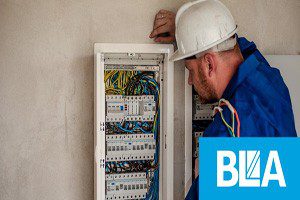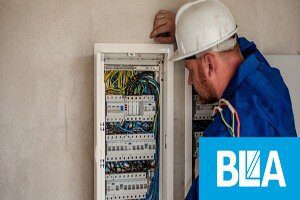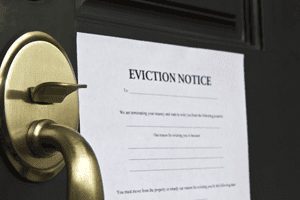Electrical Safety Regulations for Landlords July 1st, 2020
Why do we have new electrical regulations?
Mandatory electrical safety checks for rental properties have been on the cards for a long time. Most landlords already follow electrical best practices. However, the new regulations aim to ensure that properties and tenants are safe.
A consultation was held by the Electrical Standards Working Group (ESWG) in 2018 to discuss electrical safety in the private rented sector. The government in 2019 published a response to the consultation that contained several recommendations. ESWG recommendations included mandatory requirements for landlords to carry out electrical checks every five years.
Do electrical safety regulations apply to my property?
July 1st, 2020 the regulations apply to new tenancies and all existing tenancies from April 1st, 2021. The relevant date for determining when the new regulations apply is the date on which the tenancy is granted to the tenant.
If a private tenant has a legal right to occupy a property as their only or main residence and pays rent, then these electrical regulations will apply. This includes assured shorthold tenancies (AST) and licences to occupy.
Tenancy types that may be excluded are social housing, lodgers, long lease of seven years or more, hostels, student halls of residence, and refuges, care homes, hospitals and hospices, and accommodation relating to healthcare provisions.
Most landlords are proactive when it comes to ensuring the safety of their tenants and make a welcome contribution to the housing market.
In a domestic installation, permanently connected fixed current-using equipment, such as hobs, ovens, showers, night storage heaters, extractor fans and luminaires, is covered by the inspection and testing process.
Due to COVID-19 pandemic, under the government’s guidance, landlords and letting, agents are required to provide safe homes during the COVID19 pandemic.
What electrical certificate do I need?
Landlords will be required to provide tenants with an Electrical Installation Condition Report (EICR).
The checks entail a qualified electrician to check all the circuits from the consumer unit of the property and ensure they are safe.
Electrical Safety Standards in the Private Rented Sector (England) Regulations 2020 means landlords need to maintain their properties to ensure they are safe and compliant of the new electrical safety standards.
What are the new electrical standards I must comply with?
Electrical Safety Standards in the Private Rented Sector (England) Regulations 2020 stipulates the checks must meet the 18th Edition of the Wiring Regulations.
What tenancies do the electrical safety regulations apply to?
The new regulations apply residential tenancies where tenants have the right to occupy either all or part of premises as their only or primary residence, they pay rent, and it is not listed as an excluded tenancy (detailed below) These new regulations currently apply to rental properties in England. The rules replace those already in place for HMOs in England.
Do I need to give my tenant an electrical certificate?
You are required under the Electrical Safety Standards in the Private Rented Sector (England) Regulations 2020 to give a copy of the EICR to your tenants before their tenancy commences.
Any re-inspections of the EICR, landlords are required to provide tenants, with a copy of the certificate, within 28 days of the inspection.
If your tenant or the local authority requests a copy of the EICR in writing, you must also provide them with the certificate within 28 days.
Landlords who do not comply could face financial penalties for non-compliance.
How often do I need to have an electrical check done?
A standard EICR lasts five years.
I have an electrical certificate already; do I need to get a new one?
This is unclear at the moment, due to the fact the 18th edition came out in 2019. The regulations seem to suggest a property should meet the standards of the 18th Edition of the Wiring Regulations. This does potential mean most current electrical certificates before the 18th edition may be invalid.
However, according to MHCLG
Landlords should watch out for news if there is any regarding this issue. Sign-up for our free newsletter.
Who is a qualified person who can do the check?
A qualified person is deemed to be someone competent to perform the inspections or the works required.
Under the new regulations, private landlords are required to ensure that: the electrical safety standards are adhered to during the period when the premises are occupied under a specified tenancy. Every electrical installation must be inspected and tested at regular intervals by a suitably qualified electrician.
The term ‘qualified person’ is defined as a person who is competent to undertake the inspection and testing and any subsequent remedial works.
They are required to possess the qualifications set out in the recent update to the Electrotechnical Assessment Specifications.
How much does an electrical check cost?
This depends on the electrician, the property, and the size of the property. The cost could range from £80 to £200.
What happens if I have not complied?
You could face a civil penalty of up to 30,000 per breach.
The local authorities have the power to enforce the new regulations, where a breach has been committed.
Portable appliance testing (PAT) If electrical appliances, as part of a tenancy, are provided, the law expects them to be maintained in a safe condition that will not cause death or harm to the tenant.
The legislation does not set out how landlords should ensure they do this. We say PAT testing is always a good practice for landlords, although it is not a legal requirement.
Can I do electrical safety inspections myself?
Landlords are required to ensure, by law the following:
when rented, all electrical installations in that property are safe
any appliance provide in the property meets CE marking standards and is safe
The registered charity Electrical Safety First recommends that you carry out visual inspections of your property between tenancy agreements and that all electrical work done inside your properties is carried out by a registered electrician.
Whether your rental property is a standard type of property or a Home in Multiple Occupation, all checks must be carried out by a competent person. You must keep the report given to you by that qualified person. The local authority has a right to request documentation from you, and you must provide it to them within seven days (source:
What is the extent of the inspection and testing?
Regulation 3(1)(b) of the Electrical Safety Regulations 2020 states that every electrical installation in the residential premises is to be inspected and tested at regular intervals. But what is covered by the term electrical installation’?
While the term is not defined within the new regulations, it refers to the definition within the Building Regulations 2010 for England and Wales, which defines an electrical installation’ as fixed electrical cables or fixed electrical equipment located on the consumer’s side of the electricity supply meter.’ The wording suggests that the distributors and supplier’s equipment is not part of the inspection and testing. However, this not in keeping with BS 7671:2018+A1:2020.
The equipment at the intake position is owned by the distributor, with the meter, meter tails and isolator belonging to the supplier. However, as part of the inspection process, BS 7671:2018+A1:2020 requires the electrician to carry out visual inspection of the external condition of the distributor’s equipment.
Examples of distributor’s equipment requiring inspection include:
service cable
service head
earthing arrangements
meter tails
metering equipment, and
Isolators (where present).
The equipment should be inspected for signs of exposed live parts, damage, or evidence of overheating. If a defect is observed, the person ordering the report should be informed immediately, as well as in writing. It is the responsibility of the person requesting the report to inform the distribution network operator (DNO) or supplier.
Does this Regulation apply to Social Housing?
- Social Housing is covered by other regulations which require electrical safety standards to ensure tenants safety. There is no requirement for Social Housing landlords to have an electrical safety installation report every five years, like the private sector.
When will my electrical installation need inspecting and testing again?
The new regulations require the electrical installation to be inspected and tested regularly, which is not to exceed five years. However, this interval may be reduced by the inspector if there are any concerns regarding the installation. Under BS 7671:2018+A1:2020, the frequency of inspection and testing of an electrical installation shall be determined regarding:
Type of electrical installation and equipment
Use and operation of the electrical installation and equipment
Frequency and quality of maintenance
Influences that are external to which the installation or equipment may be exposed to.
British Landlords Association
Author: Simon Hampton
Date: 31st of August 2020
The British Landlords Association is a free national landlords association, membership is Free, why not join us today!





